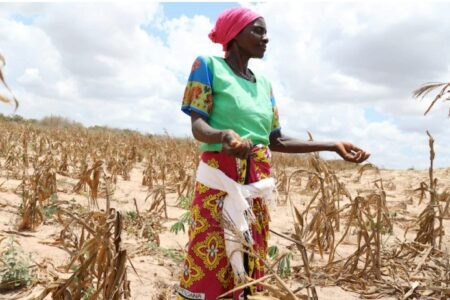
Barbados' Prime Minister, Mia Mottley, is spearheading a global push for a fundamental reform of the international financial system to provide greater access to climate finance for poorer countries. At a summit in Paris, world leaders are discussing the allocation of hundreds of billions of dollars to address climate change. Mottley emphasizes that smaller nations like Barbados urgently need assistance as they bear the brunt of climate change impacts, despite contributing less to its causes. Financial constraints often prevent these countries from implementing costly projects such as renewable energy initiatives.

The return of the El Niño weather pattern after nearly four years has raised concerns about extreme weather events, economic impact, and agricultural disruptions globally. Additionally, scientists and health organizations are now warning of another potential consequence: the resurgence of tropical diseases. The World Health Organization (WHO) has recently highlighted the increased risk of transmission for diseases such as dengue, Zika, and chikungunya due to the warmer weather associated with El Niño.

Indian Prime Minister Narendra Modi emphasized India's cultural traditions and commitment to preserving the environment during a joint statement with US President Joe Biden at the White House. Modi stated that India does not believe in exploiting nature and considers it an integral part of Indian culture. He highlighted the importance of environmental protection and climate action, stating that these principles are deeply rooted in Indian traditions.

Prime Minister Narendra Modi gifted an eco-friendly lab-grown diamond to US First Lady Jill Biden during his recent visit to the United States. The 7.5-carat diamond was grown in a lab in Surat, India, and it is certified by the Gemological Institute of America (GIA).

The beauty industry is a major polluter, and it is responsible for a significant amount of carbon emissions and plastic waste. There is an immediate need for carbon neutrality and plastic-free initiatives in the beauty industry.

Women suffer a disproportionate burden from the devastating effects of drought and desertification, according to UN Secretary-General António Guterres. In a video message, Guterres called for governments to eliminate legal barriers to women owning land and involve them in policy-making processes. Currently, less than one in five landholders worldwide are women, limiting their active participation in sustaining land health and exacerbating gender inequalities.

Europe is experiencing the effects of climate change at an alarming rate, with multiple countries recording their warmest year on record in 2022. The State of the Climate in Europe 2022 report, jointly released by the World Meteorological Organization (WMO) and the European Union's Copernicus Climate Change Service, highlights the devastating consequences of accelerated heating on the region's socio-economic fabric and ecosystems.

South Asia, particularly India, is increasingly being recognized as a global hotspot for climate change impacts, with heat waves becoming a major concern. In 2022, Pakistan, northwest, and northern India experienced the devastating effects of heat waves, followed by eastern and northeastern India and Bangladesh in 2023.

Prime Minister Narendra Modi said on Tuesday that India is working to become a green energy hub and that the country is committed to reducing its carbon emissions. Speaking at a joint press conference with US President Joe Biden in Washington, DC, Modi said that India has set a target of achieving 40% of its energy needs from renewable sources by 2030.

The tourism sector is a major contributor to climate change, loss of biodiversity, and culture. In 2018, the tourism sector accounted for 8% of global greenhouse gas emissions. The sector also contributes to the loss of biodiversity through habitat destruction, pollution, and over-tourism. And tourism can also be a threat to culture, as it can lead to the commodification of traditional cultures and the erosion of local identities.